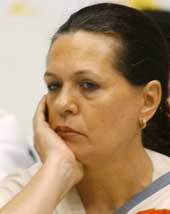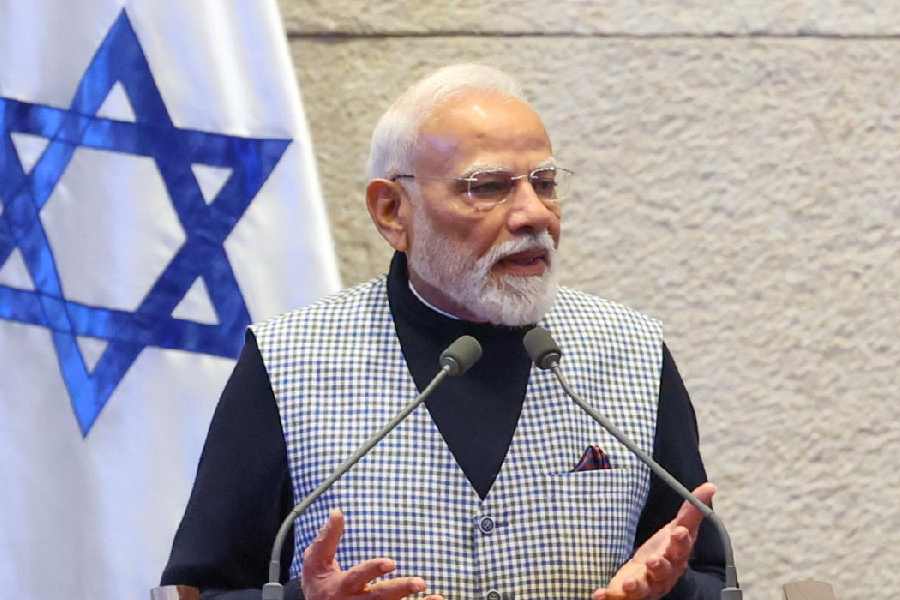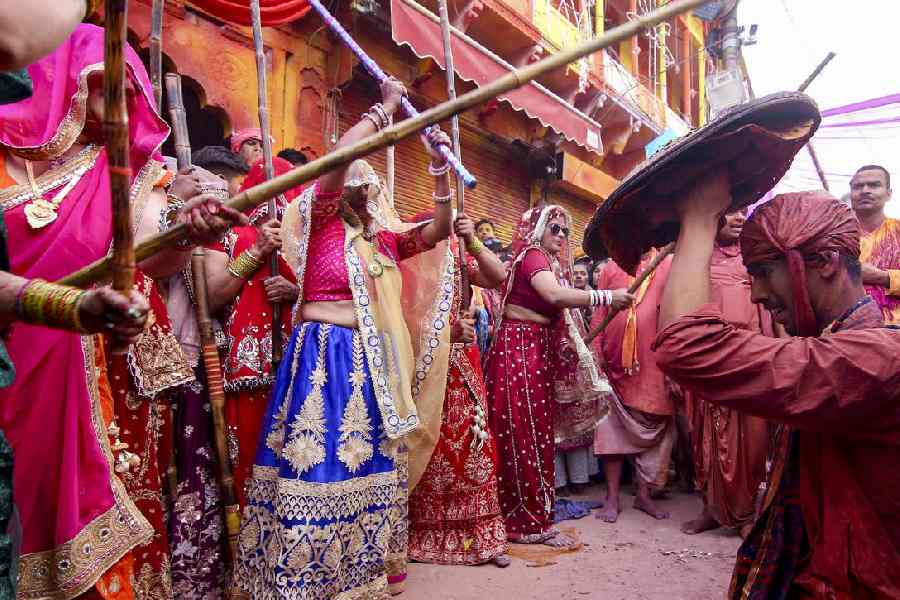|
|
There are moments in contemporary affairs which are imbued with too much history. When Sonia Gandhi declined to be the prime minister of India she created such a moment. If any one event defined 2004 for most Indians, it was that remarkably dignified announcement in May.
The circumstances can be briefly recalled. Sonia Gandhi had led the election campaign and much to the surprise of everybody, even perhaps to herself, the Congress emerged to be in a position to form a government with the help of allies. After the surprise and the euphoria had died down, the clear expectation among Congressmen, the people of India, friends of the Congress and its enemies was that Sonia Gandhi would be India?s next prime minister. She seemed to be the natural choice. She had led the campaign; she had more charisma than any other Indian politician had; and that charisma grew out of her links with the Nehru-Gandhi family. She was unanimously elected the leader of the Congress Parliamentary Party. The prime ministership was hers for the asking.
The usual suspects raised objections to Sonia Gandhi?s claims to be prime minister. The usual rhetoric of her foreign origins was used by the Bharatiya Janata Party and two viragos went to the extent of saying that they would shave their heads if Sonia Gandhi became prime minister.
Sonia Gandhi refused to succumb to any kind of pressure. She made up her own mind. The speech she made to the CPP reflected a quiet and dignified determination. She said that she had decided many years ago that if the prime ministership was ever open to her she would listen to her ?inner voice?. That voice told her to decline the prime ministership.
It was an act of renunciation. But in the act of renouncing the most powerful job in the country, her choice of words was extremely significant. Only one man had previously declared his actions to be determined by the diktats of his inner voice: Mohandas Karamchand Gandhi. Faced with a crisis or a dilemma, the Mahatma always looked inwards and allowed his inner voice to speak to him. The words ?inner voice? bore the Mahatma stamp. Other spiritual leaders had also acted on their conscience or out of inner moral compulsions but had not used so telling a phrase as ?inner voice?.
By using the phrase the Mahatma distinguished it from the public/outer voice. This was the voice he used for his routine day-to-day conversation; his political negotiations were carried out in this voice. This voice was open to compromise, to change and even to playing on different registers. The inner voice was different. It was invoked in a crisis and when it spoke it always provided a clear directive, an uncluttered path out of the crisis. It was a personal and private voice that brooked no compromise and was not subject to change.
By choosing to use this particular phrase, Sonia Gandhi deliberately invoked the image of Mahatma Gandhi, the image of a man who shunned power and stood up for certain principles and a vision of India. Sonia Gandhi?s announcement brought back to life the image of the renunciant, a powerful image in Indian public life. She identified herself with the potent and sacred Indian tradition of tyaga. It was the best possible rebuttal of those who had denied her claims to be an Indian.
One prevalent and hostile view of the Gandhi-Nehru family is that its members are power-hungry and have very few scruples in removing whatever stands in the way of acquiring power. This view draws evidence for its support from some of the actions of Indira Gandhi and those of her youngest son Sanjay. Sonia Gandhi?s entry into politics was interpreted by such people as an attempt to keep alive this aspect of the Gandhi-Nehru legacy. By declining to be prime minister, Sonia Gandhi destroyed this impression of her and her family.
It is important also to understand the reasons Sonia Gandhi gave for declining the country?s top job. In her short speech to the CPP she said, ?Power in itself has never attracted me, nor has position been my goal. My aim has always been to defend the secular foundation of our nation and the poor of our country.? In other words, certain principles in the making of India were more important to her than her personal accession to power and office. She linked her tyaga to the defence and the upholding of a vision of India. That vision was no more or no less than what the Indian national movement under the leadership of the Congress had struggled to achieve and establish. Sonia Gandhi thus placed herself in the direct line of descent to the legacy of the nationalist movement.
In no way did Sonia Gandhi overestimate the achievements of the Congress in the strengthening of the secular foundation of India. The Congress?s defeat of the Bharatiya Janata Party was the outcome of a battle. The war, she said, was yet to be won. In the use of the word ?war?, Sonia Gandhi suggested that the task of establishing secularism in India on a firm and secure basis was not going to be either easy or short.
Sonia Gandhi?s announcement took the wind out of her enemies? sails but it also drove her innumerable supporters into despair. There was a clamour for her to rescind her decision. It was said that she was indispensable. Sonia Gandhi rose above the noise and the sycophancy. She made it clear that having allowed her inner voice to show her light beyond the temptation of power, she was not going to back-pedal. The firmness of her ?no? in the face of temptation was totally refreshing in Indian politics.
In a field of public activity, where the cynical pursuit of power is the rule, Sonia Gandhi in 2004 set herself apart. This is not to make her a saint; it is not even to attach that much-abused word ?great? before her name. She only showed that one person with the requisite determination and commitment to a set of beliefs can be different and set an example. It was a proud moment for all Indians.












